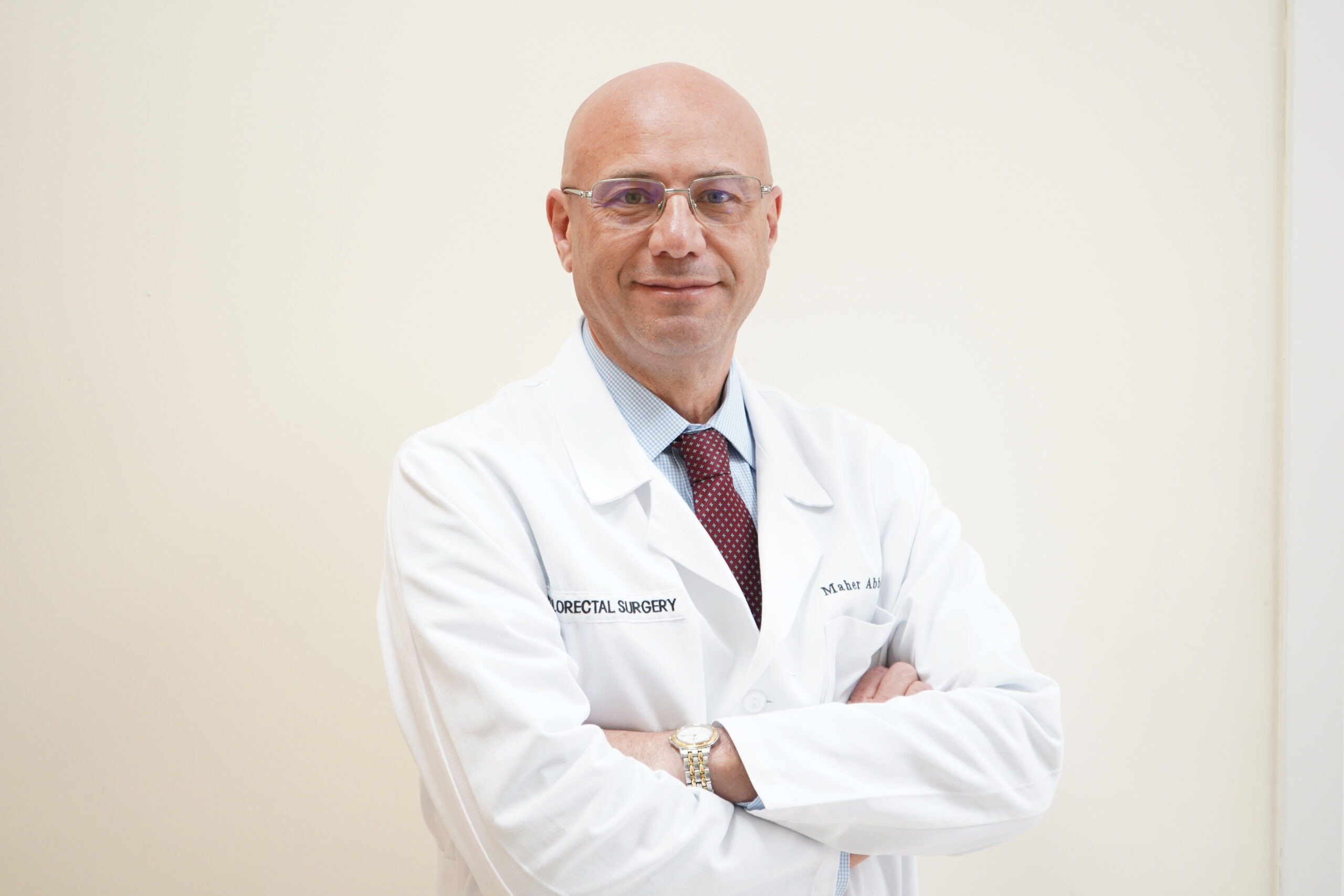What are polyps?
All of the body’s cells normally grow, divide, and then die in order to keep the body healthy and functioning properly. Sometimes this process gets out of control and cells keep growing. Colorectal polyps are abnormal growths of the inner lining of the large bowel [Figure 1]. Most commonly polyps are found in the left colon, the sigmoid colon, and the rectum [Figure 2]. Polyps can be flat (sessile polyp) [Figure 3] or can grow on a stalk (pedunculated polyp) [Figure 4]. Polyps are common but their incidence vary from country to country. In the United States of America, approximately 20 to 30% of adults have polyps. While the majority of polyps do not become cancer, some polyps are precancerous. Left untreated such polyps can turn into cancer. The size and type of polyp determine cancer risk.
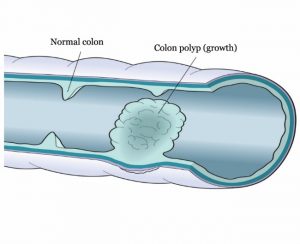
Figure 1 – Colon polyp
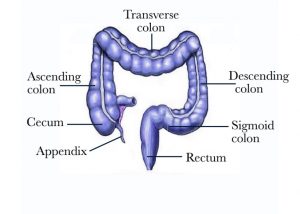
Figure 2 – The large bowel
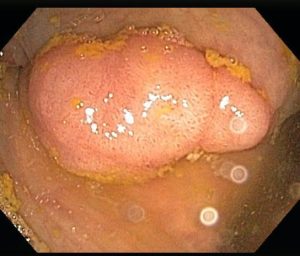
Figure 3 – Flat (sessile) polyp
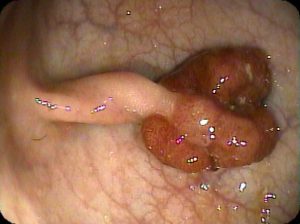
Figure 4 – Polyp on a stalk (pedunculated)
What are the symptoms of colorectal polyps?
It is important to note that most patients with colorectal polyps do not have any family history of colorectal cancer or polyps. Furthermore, most patients with polyps have no symptoms. Therefore, it is very important for any person over the age of 40 to undergo screening for colorectal polyps and cancer.
Although the majority of patients with polyps have no symptoms, the following are some of the signs and symptoms that can be present:
- Abdominal pain or gas pains
- Anemia (iron deficiency)
- Change in the stool caliber or narrowing of the stool
- Change in your normal bowel habits
- Constipation or diarrhea
- Excess mucus production in the stool
- Positive stool test (guaiac or calprotectin)
- Rectal bleeding (bright red or dark blood)
How are polyps diagnosed?
Colonoscopy is the best test to screen for polyps. A tiny flexible tube with a video camera attached to its tip is inserted through the anus and advanced inside the colon [Figure 5]. If a growth is detected it can be removed in its entirety if small and at the precancerous stage. The vast majority of polyps can be removed or destroyed during colonoscopy. Large polyps may require more than one colonoscopy for complete removal.
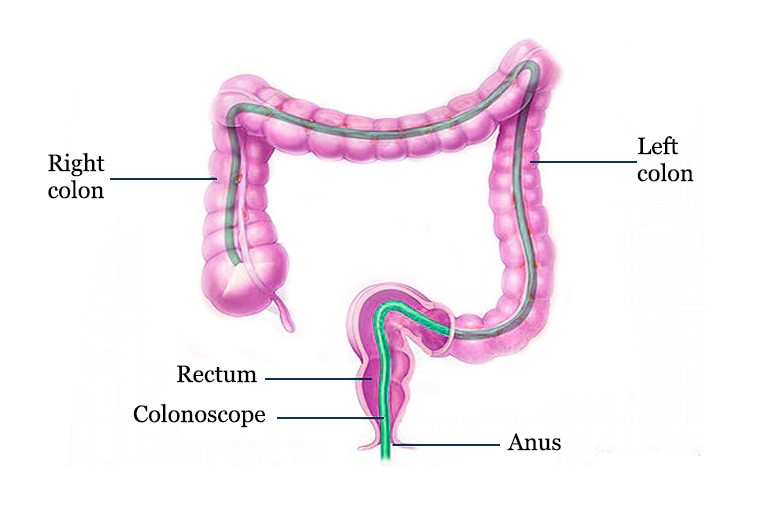
Figure 5 – Colonoscopy
The removed polyps are sent for histologic evaluation. Polyps that cannot be completely removed due to size, location, or type, and those suspicious for cancer are biopsied.
How often should a colonoscopy be done?
Patients with colorectal polyps require follow-up colonoscopy to check for new polyps. The frequency of colonoscopy exams depends on the size, number, type of polyps, and your age. For most patients, the next colonoscopy is within 3 to 5 years. However, patients with large polyps, high risk polyps, or a large quantity of polyps need repeat examination within 1-2 years. Patients with larger polyps who undergo endoscopic resection may be advised to have a repeat examination within 2 to 6 months. Dr. Maher Abbas will customize your care and advise you of when to undergo a repeat examination.
Why is it important to seek a board certified colorectal surgeon for your care?
The proper detection and removal of colorectal polyps is critical to minimize the risk of recurrence or progression to cancer. The quality of colonoscopy examination is of paramount importance in order to remove polyps in an efficient and safe manner. Furthermore, large polyps require tremendous technical expertise for safe removal and management. Dr. Maher Abbas is an American Board Certified colon and rectal surgeon with extensive expertise in colon and rectal surgery. He is a Diplomate of the American Board of Surgery and the American Board of Colon and Rectal Surgery. He is a Fellow of the American College of Surgeons and the American Society of Colon and Rectal Surgeons. To date, Dr. Maher Abbas has performed over 15,000 operations and procedures. He is globally known for his colon and rectal surgery expertise and skills in colonoscopy and endoscopic removal of complex polyps.
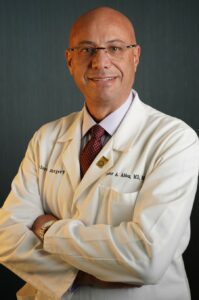
If you would like to schedule an appointment with Dr. Maher Abbas to learn more about colorectal polyps and colonoscopy, click here.

